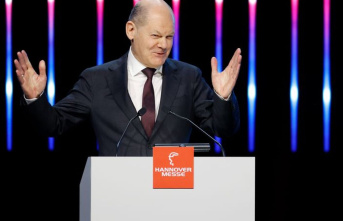There are about 65,000 inuit in Canada. Inuit means “the people” in inuktitut, their language; the term eskimo it seems to them pejorative. 70% live in the arctic area of the country, in parts of the provinces of Quebec and Newfoundland-Labrador, as well as in the Northwest territories and Nunavut. The remaining 30% distributed mainly in Ottawa, Yellowknife, and Montreal. Some enjoy economic stability in these cities, but the majority survive between jobs sporadic and begging. In Montreal, their presence is very visible in the streets.
MORE INFORMATION
Trudeau apologizes to the Inuit people for the treatment they gave to the patients of tuberculosis of The village eskimo in 11 of its 1.779 inhabitants have committed suicide this yearAccording to a study Eric Latimer, professor of psychiatry at McGill University, the inuit represent 0.04% of the population of Montreal, but are 2.9% of the homeless people. It is the indigenous group most affected by this situation. Many come to receive medical care non-existent in their communities (cancer treatment, dialysis, certain surgeries and appointments with specialists) or to accompany a family member with this purpose, although a system poorly adapted to their needs leads to frequently prolong his stay indefinitely. “Several inuit served their sentences in federal prisons or provincial, but are unable to return to their villages of origin by judicial decisions. This increases the probability of ending in the street,” says Latimer.
Other more undertake the journey by the harsh conditions in their communities. Various indicators show marked differences between indigenous groups in canada and the rest of the country, but the numbers of inuit are the most extreme. The infant mortality rate is 12.3 per 1,000 children (4,4 among the other canadians), the rate of suicide is nine times higher and the level of schooling is the lowest in Canada. Some young people migrate to urban centres to pursue their education thanks to scholarships, but they are few.
unemployment is also a factor that kicked out of their communities. The unemployment rate in the population of inuit is 25%, while the national is 5.7%. In turn, the prices of various products are very high in the canadian Arctic.
Many inuit who want to work in the south of the country have communication difficulties, have few studies and they suffer constant acts of discrimination. “A considerable number of indians point out that they are denied the rental of an apartment without a detailed explanation. This is more pronounced towards the inuit,” says Latimer.
Joe, originally from Kuujjuaq (Quebec), came to Montreal a year ago to work in a factory, but lost the post weeks later. “Sometimes I find employment for a few days. It is not easy, and anyway, my life in my community wasn't better,” he says.
Jessica Quijano is the co-ordinator of Iskweu, a project of the Women's Shelter Indigenous of Montreal. “We help family and friends to denounce the disappearance of these women to the police. It is an institution that does not inspire confidence,” explains Quijano, who attends especially to the inuit. In December 2018, Donna Paré, 32 years of age and a native of Iqaluit (Nunavut), disappeared in the metropolis of Quebec. Still, his whereabouts are unknown. “Many inuit women come to the city fleeing domestic violence, but people here live in conditions highly vulnerable and re-experience it often,” adds Quijano. In this scenario, the sexual exploitation is not a topic anecdotal.
The alcoholism and drug abuse are two problems prevalent in the inuit communities of the canadian Arctic. Some towns have banned alcohol, but smuggling is prevalent in a geography as vast. Addictions also strike with force to the inuit living in Montreal. “Sometimes spend the night in a hostel, provided you have not consumed alcohol. So is the regulation. If I drink, I seek to place on the floor of the apartment of a known or I get to sleep in the street,” Joe says. Certain hostels day yes allow entry to people alcoholic or under the influence of drugs.
Policies colonialists
Latimer is working on a project to subsidize housing to the inuit in Montreal. “We've seen positive results, but certain factors, especially the dependences hamper things. Consider the conditions faced by this people and what they have lived from decades ago”, mentioned.
The political colonialists of Canada have left deep footprints. The aim was, according to the official line, to solve the “problem eskimo”. It is enough to remember the sedentarization exerted on the inuit by means of forced displacement; also the extermination of thousands of dogs in the fifties and sixties at the hands of police officers. Another example was the network of boarding schools at federal level. About 150,000 children —both inuit as well as other groups— were required to attend these centres, which sought to erase their cultural identity. Within those walls, physical punishment and sexual abuse were common.
The square Cabot in Montreal is very frequented by the inuit and other indigenous groups. There are shelters to provide support, but the closing of one of them had a greater impact. The Open Door, which was located near the plaza, has canceled his activity the last year, since the premises occupied became a real estate agent. After 11 months of uncertainty, the centre re-opened, but in a neighborhood away. During that time he recorded 14 deaths in the square, Cabot and surrounding areas (suicide, overdose, physical problems). Seven of the dead were inuit, as Connie Kadlutsiak, born in Igloolik (Nunavut). He died in January from complications of liver caused by alcohol. “You could have avoided several of these deaths with an intervention more quickly,” says Quijano. After relentless pressure, the Government of Quebec and the mayor of Montreal is committed to open a new centre in the area. A few weeks ago, finally, it was inaugurated the hostel Résilience.
In August, the prime minister, Justin Trudeau, announced a plan of eight years for the construction and repair of housing in the regions inhabited by the inuit and mentioned the funding of educational programs for young people. Trudeau had submitted months ago an official government apology for the treatment that Canada was between 1940 and 1960 to the patients of tuberculosis inuit —were separated forcibly from their families to their treatment—. After his re-election in the polls on the 21st of October, endorsed its commitment to the indigenous peoples. “We need more investments in the accompaniment of the inuit in the cities, but also require large support in their communities. It is the only way to break this vicious circle”, adds Latimer.
Date Of Update: 30 December 2019, 00:00










